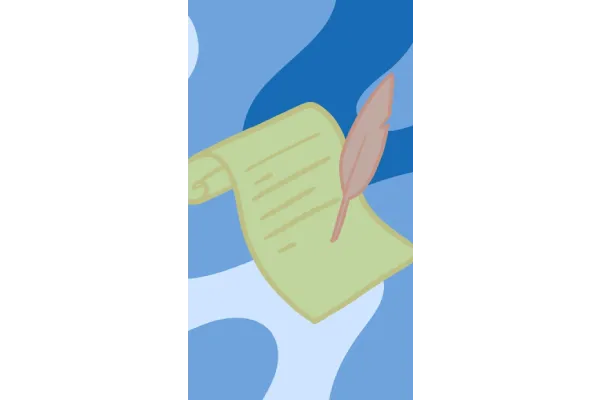
Have you always wanted to write poetry but don’t know where to start? Here are some ideas on how to get started!
If you have never written poetry, or have and are feeling unsure about it, it sure can be daunting! However, writing poetry can be very therapeutic. If you want to learn specific, designated poetry writing techniques, you may want to take a class. But as humans, we have the ability to write poetry in different forms from classical styles to more modern. The goal is to find your inner poetry voice. This is the voice that wants to come out and say something. Poetry doesn’t have to rhyme but rhyming is fun. Poetry doesn’t have to mean anything to anyone else, but has meaning for you. The following are some ways that can help a beginner start writing. The next step after writing and poetry completion, would be to share your poetry piece, if you feel comfortable!
Create a Non-Judgmental Environment:
There are no "right" or "wrong" poems. Poetry is a highly subjective art form, and personal expression is key.
Here is a reminder to you, that even acclaimed poets started as beginners.
Start with Freewriting:
Set aside structured forms initially and just write freely. This can help with comfort while putting thoughts on paper and helps to write without worrying about structure or rhyme.
Use Prompts:
Find writing prompts or themes to kickstart creativity. Prompts can provide direction and make it easier to get started.
Read Widely:
Read a wide variety of poetry. Exposure to different styles and voices can inspire and alleviate fears by showing that there are many ways to write poetry.
Share and Seek Feedback Carefully:
Share poems with trusted friends or in a supportive writing group. Constructive feedback can help improve writing and boost confidence.
Here is a reminder that you don't have to share if you are not comfortable doing so.
Practice Regularly:
Consistency is KEY. Writing regularly, even if it's just a few lines a day, helps build confidence and skill over time.
Accept Vulnerability:
Vulnerability is a natural part of writing poetry. Famous poets and artists were nervous and have bared their souls through their work, showing that vulnerability can be a source of strength.
Set Realistic Expectations:
Let go of the notion that every poem has to be a masterpiece. Some poems will be better than others, and that's perfectly normal.
Embrace Rejection as Part of the Process:
Rejection is common in the writing world, even for experienced poets. Rejections are not a reflection of worth as a writer but rather a stepping stone to improvement.
Find Inspiration:
Seek inspiration in everyday experiences, nature, art, or your own life. Poetry often emerges from the ordinary and the extraordinary alike.
Experiment:
Try different forms and styles of poetry, from haikus to sonnets to free verse. Experimentation can lead to unexpected creative breakthroughs.
Keep a Journal:
Maintain a poetry journal or notebook. This private space allows room for experimenting and jot down thoughts without the pressure of an audience.
Attend Workshops and Events:
Participate in poetry workshops, readings, or open mic events. These opportunities can provide valuable exposure and create connections with a supportive community of poets.
Celebrate Small Wins:
Celebrate every achievement, no matter how small. Whether it's completing a first draft, receiving positive feedback, or overcoming writer's block, these accomplishments, even small, deserve recognition.
Stay Patient and Persistent:
A proficient poet takes time and effort. Writing is a journey, and improvement happens gradually.
Inspire Through Role Models:
Research famous and local poets/artists who faced their fears and went on to achieve success. Hearing about others' journeys can be incredibly motivating. One suggestion would be to ask peers in workshops and open mics.
Remember Why You Started:
Reflect on the initial passion for poetry. Reconnecting with the original inspiration can help overcome fears and continue creating.
Participate in a TASGM Workshop!!
These workshops are designed to be fun, interactive! There are specific workshops for each age group with a safe environment for participants to be creative and vulnerable.
Most of all have fun!
Remember its more about the journey, then the destination. Be in the present moment and have fun in the process!
The good news is that we aren’t being graded for our work. Writing poetry will help with self discovery, releasing of stuck feelings and emotions.
Ultimately, the key is to find a nurturing and supportive environment for yourself, the beginner poet, where your fears are acknowledged but not allowed to hinder your creative journey. With time and encouragement, beginners can learn to embrace vulnerability and find your own unique voice in the world of poetry.